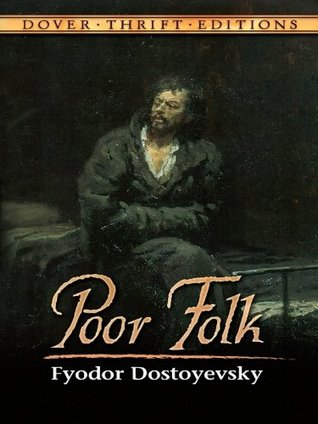More on this book
Community
Kindle Notes & Highlights
And you know, my dear, one is ashamed as it were not to drink tea; here they are all well-to-do people so one feels ashamed. One drinks it, Varinka, for the sake of the other people, for the look of the thing; for myself I don’t care, I am not particular.
Ah, what will become of me, what will be my fate! What is painful is that I am in such uncertainty, that I have no future to look forward to, that I cannot even guess what will become of me. It is dreadful to look back, too. There is such sorrow in the past, and my heart is torn in two at the very memory of it. All my life I shall be in suffering, thanks to the wicked people who have ruined me.
Memories are always tormenting, whether they are glad or bitter; it is so with me, anyway; but even the torment is sweet. And when the heart grows heavy, sick, weary and sad, then memories refresh and revive it, as the drops of dew on a moist evening after a hot day refresh and revive a poor sickly flower, parched by the midday heat.
At last I guessed what he wanted. He was begging me to draw up the window curtain and open the shutters. No doubt he wanted to look for the last time at the day, at God’s light, at the sunshine. I drew back the curtain, but the dawning day was sad and melancholy as the poor failing life of the dying man. There was no sun. The clouds covered the sky with a shroud of mist; it was rainy, overcast, mournful. A fine rain was pattering on the window-panes and washing them with little rivulets of cold dirty water; it was dark and dingy. The pale daylight scarcely penetrated into the room and hardly
...more
I threw myself on mother’s bosom in terrible distress. I pressed her tightly in my arms, I kissed her and burst into floods of tears, huddling up to her fearfully as though trying to keep in my arms my last friend and not to give her up to death . . . but death was already hovering over poor mother. . . .
was very happy, very content, but in my very best moments I am always for some reason sad.
Literature is a picture, that is, in a certain sense, a picture and a mirror: it’s the passions, the expression, the subtlest criticism, edifying instruction and a document.
one sits and sits and thinks—one remembers all the past, joyful and sad alike—it all passes before one’s eyes, it all rises up as though out of a mist. Familiar faces appear (I am almost beginning to see them in reality)—I
Oh, my dear friend! misfortune is an infectious disease, the poor and unfortunate ought to avoid one another, for fear of making each other worse.
I was numb with horror and put wool in my ears, but the worst of it is that other people did not put wool in theirs, but pricked them up, on the contrary.
Poor people are touchy—that’s in the nature of things. I felt that even in the past. The poor man is exacting; he takes a different view of God’s world, and looks askance at every passer-by and turns a troubled gaze about him and looks to every word, wondering whether people are not talking about him, whether they are saying that he is so ugly, speculating about what he would feel exactly, what he would be on this side and what he would be on that side, and everyone knows, Varinka, that a poor man is worse than a rag and can get no respect from anyone; whatever they may write, those
...more
What a strange character you have, Makar Alexyevitch; you take everything too much to heart and so you will be always a very unhappy man.
If one takes all another person’s troubles so to heart and sympathises so intensely with everything it is bound to make one very unhappy.
I wanted to brush the mud off, but Snyegirev, the porter, said I mustn’t, I should spoil the brush, and “the brush is government property,” said he.
They said, the spiteful creatures, that even my appearance was unseemly and they were disgusted with me, and so I began to be disgusted with myself; they said I was stupid and I really thought that I was stupid.
Why does it happen that a good man is left forlorn and forsaken, while happiness seems thrust upon another? I know, I know, my dear, that it’s wrong to think that, that it is free-thinking; but to speak honestly, to speak the whole truth, why is it fate, like a raven, croaks good fortune for one still unborn, while another begins life in the orphan asylum?
One dies so easily for no reason . . .


